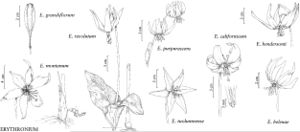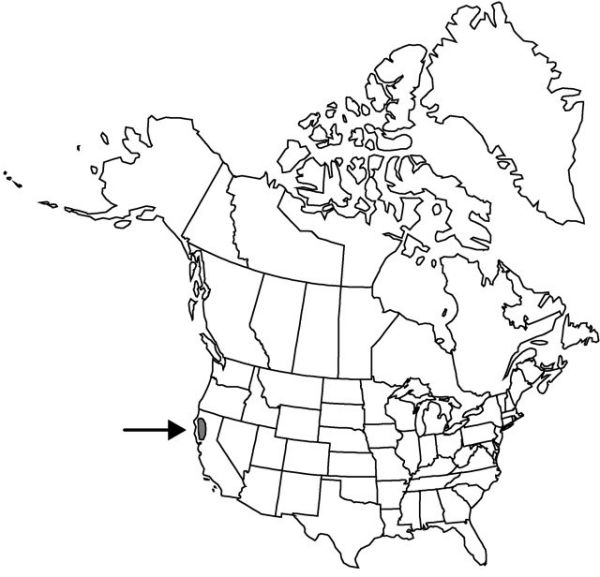Erythronium californicum
Fl. & Sylva 2: 253. 1904.
Bulbs ovoid, 35–60 mm, sometimes producing sessile offsets. Leaves 7–18 cm; blade distinctly mottled with irregular streaks of brown or white, oblong to narrowly ovate, margins usually wavy. Scape ± reddish, branched well above leaves when flowers more than 1, 10–30 cm. Inflorescences 1–3-flowered. Flowers: flowering individuals generally abundant in populations; tepals white to cream, base yellow and often banded with brown or red, ± narrowly ovate, 25–40 mm, inner with small auricles at base; stamens 12–25 mm; filaments ± white, linear, slender, less than 0.8 mm wide; anthers white to cream; style ± white, 10–14 mm; stigma unlobed or with lobes less than 2 mm. Capsules obovoid, 3–6 cm. 2n = 24.
Phenology: Flowering spring (Mar–Apr).
Habitat: Dry woods, openings, cliffs
Elevation: 0–1900 m
Discussion
Forms intermediate with Erythronium citrinum and E. multiscapideum are sometimes seen where ranges overlap.
Selected References
None.

